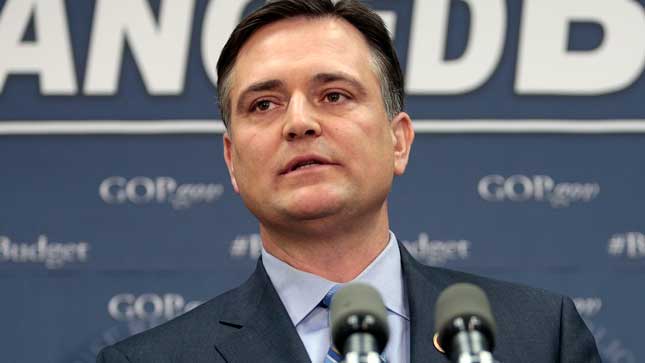by Congressman Luke Messer
Almost daily, America’s television sets report the latest act of mass violence – both here and around the globe. These tragedies represent a loss of life mourned by family, community and country alike.
The deaths strike with such regularity that one could become almost numb to the results – mentally cataloging them as just another number in a growing inventory of statistics. But the reality is that each of these numbers represents a story, and each story has a name. As a nation, we must remember those names and pursue sensible policies that prevent further loss.
We are, of course, in the midst of a heated debate about how best to do that. There are no easy answers, but there are opportunities for common ground – areas of consensus where most agree. In that spirit, addressing our nation’s broken mental health system seems like a good place to start.
Statistically, nearly 1 in 5 U.S. adults suffer from a mental illness, and nearly 1 in 20 adults suffer from a serious mental illness (SMI) as diagnosed by the DSM-IV. Chances are, you know someone who falls into one of these two categories.
According to data from the Federal Bureau of Investigation (FBI), there were nearly 12,000 murders in the U.S. in 2014. Just over 8,000 of those were with firearms, and less than 300 used a rifle of any sort (including the AR-15 “assault” style rifle). Contrary to what we hear in the media, this is actually a 9% decline in gun murders since 2010, a 20% decline in gun murders since 2005, and a 50% decline in gun murders since 1995. Still, this number is too high. And, while mental illness isn’t a factor in every gun death, it is a central factor in many gun-related homicides and mass shootings.
Mental illness also plays a leading role in America’s staggering suicide rate. According to recent data from the Centers for Disease Control and Prevention (CDC), over 41,000 people committed suicide in 2013. Together, this is roughly 50,000 people who die each year from preventable causes related to mental illness. By reforming our nation’s mental health system, we have an opportunity to lower that number significantly.
In July, the House took a big step in that direction by passing the Helping Families in Mental Health Crisis Act. This bipartisan legislation will make significant reforms to an outdated, under-supervised, national mental health system that, too often, fails to adequately identify and serve the mentally ill. For starters, the bill would make it easier for physicians to share critical information with family members of affected individuals, thereby empowering caregivers to help those who can’t help themselves. In addition, it would address the nation-wide shortage of psychiatric hospital beds, making sure that high-need individuals aren’t denied service because of limited space. Finally, it would increase patient access to targeted preventative care to help address their illness before it becomes a crisis.
In candor, these reforms are long overdue. In addition to suicide and gun violence, mental illness is closely tied with other national challenges like homelessness, incarceration, domestic violence, and targeted victimization of the mentally ill. Through our legislation, each of these challenges can be better met. When they are, state and federal leaders can reallocate resources and reinvest in front-end prevention measures. That approach will be more cost-effective and more likely to reach a positive outcome for everyone involved.
Luke Messer represents Indiana’s Sixth Congressional District














